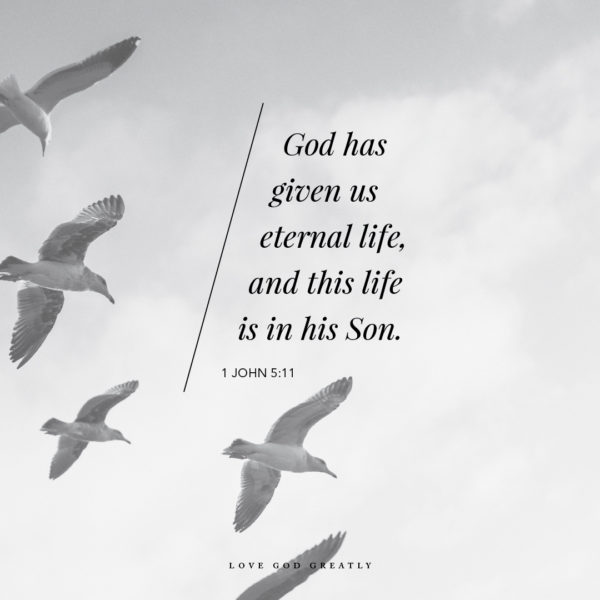
When I visited Israel, one of the most significant places for me during the trip was our visit to the Jordan river. It looked nothing like I envisioned. Whenever I thought about the Jordan river I’d pictured a lush river bank, full of green trees and lots of grass. I imagined I’d see a mighty river, clear and flowing, full of life and beauty.
That is not what I saw.
The Jordan River (at least where we visited) was narrow, the bank held a large amphitheater leading into the water, and the water itself was murky and dirty. Standing in ankle deep water, we couldn’t see our toes. The amphitheater had been built up to hold the many groups of tourists coming to see the spot on the Jordan where it is believed Jesus was baptized by John.
Even though the scene in front of me was drastically different than I’d pictured, I was still moved to tears. Jesus, the Son of God, the Savior of the world, was baptized in a humble, ordinary place in the river. He began His ministry in an ordinary, everyday place. I was reminded and in awe of His humility. As the Son of God, He could have demanded all the ceremony and circumstance necessary to tell the entire world He was here. Instead, He chose a humble spot in a river.
This was the beginning of Jesus’ ministry. After Jesus was baptized in the waters of the Jordan River, the Holy Spirit descended on Him like a dove (Luke 3:21). Then, a voice was heard from heaven saying “You are my one dear Son; in you I take great delight” (Luke 3:22). This anointing from heaven was God letting those who were with Jesus know who He was. John the Baptist testified about Jesus saying, “I have both seen and testified that this man is the Chosen One of God” (John 1:34). This event signified the beginnings of Jesus’ ministry on earth. After His baptism, Jesus proclaimed the coming Kingdom of God, healed the sick, and called His disciples.
Another humble location in Jesus’ ministry is the place He was crucified. The believed location of Jesus’ crucifixion is a place that is now within the city walls of Jerusalem but, at the time of Jesus, this place was a small rock quarry just outside the city gate. There was nothing fancy or special about it. It was the place the Roman officials would mercilessly murder criminals they wanted to humiliate. It was definitely no place to bury a king.
The location of Jesus’ crucifixion did nothing to diminish the significance of the event. His blood was spilled in a humble, unimpressive place in Jerusalem, but the magnitude of His sacrifice changed everything. Jesus, living a sinless life, died to pay for the sins of all.
Because of Jesus’ deity, His sacrifice covers us for eternity. Because Jesus is eternal, His sacrifice covers the eternal debt we owed because of our sin. Because of Jesus humanity, He was able to take our place. God cannot die, and in taking on humanity, Jesus died the death we all deserved.
In 1 John 5:5-12 John confirmed this testimony about Jesus: Jesus is the Son of God, and the only way to eternal life is through Him. John addressed false teachings that had begun in the church in this letter. Some were saying Jesus was not fully God: that Jesus was a man, one whom God had chosen to be His messenger. Some were saying Jesus was not fully human: that Jesus was God and had not taken on the fullness of humanity.
Jesus’ deity and Jesus’ humanity cannot be separated from one another. He is the Son of God. He is fully God; He is not part of God or a “second in command” god. Jesus is God. Jesus is fully human. He is a Jewish man; He had to learn to walk, talk, and eat. He was a child, an adolescent, and a man. Without the fullness of His deity, His testimony about Himself is a lie. Without the fullness of His humanity, He could not die in our place.
This is John’s message in 1 John 5:5-12. John explained how Jesus was exactly who He said He was: The Son of God. Jesus is fully human and fully God. John explained how the testimony about Jesus is confirmed through His baptism (water), His death (blood), and the Holy Spirit. These three things give us the unshakable testimony of who Jesus is: The Son of God who has eternal life.
And this is the testimony: God has given us eternal life, and this life is in His Son. The one who has the Son has eternal life; the one who does not have the Son of God does not have this eternal life. –1 John 5:11-12
This is the testimony: Jesus is the Son of God. Without Jesus, we do not have eternal life. While the hypostatic union (the deity and humanity of Christ) is not always an easy concept to grasp, we can rest in the truth that with Jesus, we have eternal life. His testimony is what we stake our lives on, and His testimony will always prove true.





We can surely learn humility from Jesus our Lord and Savior+
Amen Cyndi. Such humility Christ showed us. Thank you for being with us on the blog today and for sharing. God bless you.